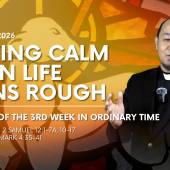Living the Fruit of the Spirit Online

The apostle Paul, writing to believers scattered across ancient trade routes, could hardly have envisioned a world where human consciousness would be shaped by algorithms and where community would flourish behind luminescent screens.
Yet his words in Galatians 5:22–23 resonate with prophetic clarity across the millennia. They offer a blueprint for spiritual flourishing that transcends technological epochs. The fruit of the Spirit, love, joy, peace, patience, kindness, goodness, faithfulness, gentleness, and self-control, emerges as essential architecture for souls navigating digital turbulence.
Love
Love confronts us with its radical demands in an era where relationships can be reduced to data points, where human beings become content creators competing for algorithmic favor. The Greek word Paul employed, agape, speaks of love that flows outward regardless of reciprocity, a love that sees the sacred embedded in the mundane. When we encounter someone whose political opinions inflame us on social media, agape asks not whether they deserve kindness but whether we can recognize the image of God flickering even in their misguided posts. This love refuses to reduce others to caricatures. It practices the slow, revolutionary art of truly seeing.
Joy
The digital mirage of joy presents itself in curated highlights and carefully filtered moments. But biblical joy, chara, springs from wells deeper than circumstance. It emerges from the recognition that we are known, cherished, and held by One whose love predates our first breath and will outlast our final heartbeat. This joy cannot be manufactured by any algorithm, no matter how sophisticated. It requires cultivation through practices that seem almost countercultural: silence, solitude, gratitude for the ordinary gifts that no camera captures.
Peace
Peace, eirene, in Paul’s understanding encompasses not merely the absence of conflict but the presence of wholeness, of life aligned with divine purpose. Our devices promise connection but often deliver fragmentation. True peace in this hyperconnected age requires intentional cultivation of inner stillness, moments when we resist the gravitational pull of our screens and remember that we are more than the sum of our digital interactions. It means learning to distinguish between being busy and being purposeful, between being stimulated and being satisfied.
Patience
The cultivation of patience, makrothumia, becomes particularly challenging in an environment designed for instant gratification. We grow accustomed to immediate responses, information appearing at the speed of thought, and entertainment on demand. But biblical patience involves far more than waiting; it encompasses endurance, steadfastness, and the capacity to remain gracious under pressure. When someone misinterprets our carefully crafted message or when technology fails at crucial moments, patience invites us to respond from our deepest center rather than our immediate irritation.
Kindness and Goodness
Kindness and goodness, chrestotes and agathosune, manifest as active benevolence, as the choice to use our digital platforms for building up rather than tearing down. In comment sections and social media exchanges, these fruits transform us from passive consumers to active cultivators of grace. They compel us to share truthful information, amplify voices of wisdom, and create content that nourishes souls.
Faithfulness
Faithfulness, pistis, extends beyond personal loyalty to encompass reliability, trustworthiness, and consistent character across all platforms and personas. The temptation to curate multiple identities, to present different versions of ourselves for different audiences, conflicts with the integrated wholeness that faithfulness demands. This fruit calls us to coherence, to living as the same person whether we are interacting face-to-face or through fiber optic cables.
Gentleness
Gentleness, prautes, emerges as controlled strength, as the capacity to engage in heated discussions without becoming heated ourselves. In digital discourse, where nuance often gets lost and context frequently disappears, gentleness becomes a form of resistance against the forces that would reduce complex human beings to simplified positions. It means engaging with ideas rather than attacking individuals, seeking understanding before demanding to be understood.
Self-Control
Self-control, egkrateia, perhaps faces its greatest challenge in our current moment. The very architecture of digital platforms is designed to capture and hold attention, creating behavioral loops that keep us scrolling, clicking, and consuming. Breaking free from these patterns requires more than willpower; it demands a fundamental reorientation of desire, a cultivation of appetites for what truly nourishes rather than what merely stimulates.
The profound irony of our technological age is that while we have unprecedented access to information, we often struggle with wisdom; while we can connect instantly with people across the globe, we frequently feel isolated; while we have more entertainment options than any generation in history, rates of anxiety and depression continue climbing.
The fruit of the Spirit offers a different way forward, not through rejection of technology but through engagement with it from a place of spiritual groundedness. These ancient virtues function not as restrictive rules but as liberating practices, freeing us from the tyranny of algorithmic manipulation and digital addiction. They invite us to approach our devices as tools for love rather than distractions from it, as opportunities for witness rather than stages for performance, as spaces for authentic connection rather than arenas for competition.
The fruit of the Spirit ultimately transforms us into agents of redemption in virtual spaces, carrying the aroma of Christ into comment sections and video calls, boardrooms and chat rooms. We become living demonstrations that another way is possible: that human flourishing need not be sacrificed on the altar of technological progress, and that ancient wisdom can indeed illuminate modern pathways.
In embracing these spiritual fruits, we discover that the most sophisticated technology remains our own hearts, fearfully and wonderfully made, capable of love no artificial intelligence can replicate and joy no algorithm can manufacture.
Radio Veritas Asia (RVA), a media platform of the Catholic Church, aims to share Christ. RVA started in 1969 as a continental Catholic radio station to serve Asian countries in their respective local language, thus earning the tag “the Voice of Asian Christianity.” Responding to the emerging context, RVA embraced media platforms to connect with the global Asian audience via its 21 language websites and various social media platforms.














